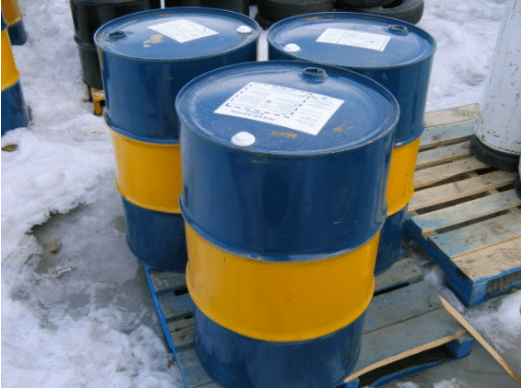TLDR
- Crude oil surged over $2 after the U.S. sanctioned Rosneft and Lukoil.
- Asian markets declined following Wall Street losses and oil price spike.
- Japan’s Nikkei dropped 1.3% as stimulus plans and weak yen spooked traders.
- China’s markets fell amid fears of tighter U.S. export restrictions.
Asian markets dropped on Thursday following new U.S. sanctions targeting major Russian oil companies. Crude prices surged over $2 a barrel as tensions escalated. U.S. President Donald Trump’s latest move to pressure Moscow over the war in Ukraine triggered volatility in global markets. Meanwhile, investors across Asia reacted to slower Wall Street performance, economic uncertainty, and currency movements.
Oil Prices Rise After U.S. Sanctions Russian Energy Firms
Crude prices increased sharply after the United States imposed sanctions on Russian oil giants Rosneft and Lukoil. The move was announced by President Donald Trump, aiming to force President Vladimir Putin to negotiate and end Russia’s war on Ukraine.
As of early Thursday, U.S. benchmark crude climbed $2.31 to $60.81 per barrel, while Brent crude rose $2.38 to $64.97 per barrel. Energy markets responded quickly, with concerns that supply disruptions could follow, especially if Russia cuts back output or exports in response.
Traders were also monitoring the European Union’s actions, as leaders held a summit to approve further restrictions against Russia. EU officials are also considering plans to use frozen Russian assets to support Ukraine’s defense and economic needs over the next two years.
Asian Markets React to Global and Regional Pressures
Asian shares were mostly lower, tracking declines from U.S. stock indexes and concerns over tighter global trade rules. Markets in Japan, China, and South Korea posted losses, while Australia saw a small gain.
In Japan, the Nikkei 225 dropped 1.3% to 48,683.84. Investors remained cautious after reports said Prime Minister Sanae Takaichi plans to release a large economic stimulus package, expected to exceed last year’s 14 trillion yen ($92 billion). SoftBank Group shares fell more than 4% after it announced new bond offerings to fund its AI investments.
China’s Shanghai Composite Index lost 0.7% to close at 3,886.19. The decline followed reports that the U.S. may tighten controls on exports to China involving software-based technologies. Meanwhile, Hong Kong’s Hang Seng Index slipped 0.2% to 25,738.00.
South Korea’s Kospi was down 0.9% at 3,849.87, as investors stayed cautious due to slow progress in trade discussions with the U.S. Australia’s S&P/ASX 200 edged up slightly by less than 0.1% to 9,032.80, while Taiwan’s Taiex dropped 0.4%. India’s BSE Sensex rose 0.8%, offering a rare boost in the region.
U.S. Market Pullback Pressures Global Sentiment
U.S. stocks closed lower on Wednesday, with all three major indexes declining. The S&P 500 fell 0.5% to 6,699.40, while the Dow Jones Industrial Average dropped 0.7% to 46,590.41. The Nasdaq Composite lost 0.9%, ending at 22,740.40.
The tech sector led the decline, with Netflix shares dropping after its quarterly profit missed analyst expectations. The company’s earnings fell short even though subscriber growth remained strong. Investors are watching closely as more companies report results amid high valuations in the market.
Financial stocks moved the other way. Capital One Financial rose 1.5%, and Western Alliance Bancorp gained 3.2% after better-than-expected earnings. Western Alliance’s report helped calm recent concerns in the banking sector.
Currency and Commodity Updates
The Japanese yen continued to weaken against the U.S. dollar, trading at 152.37 per dollar, compared to 151.94 the day before. The pressure on the yen came as Prime Minister Takaichi confirmed her support for low interest rates to support growth.
Gold prices recovered after falling over the past two days. The precious metal rose nearly 1% to $4,104.50 in early trading. Investors returned to gold as a safe-haven asset after the sanctions announcement and market volatility.
Meanwhile, Beyond Meat stock saw sharp swings during U.S. trading hours. After rising more than 100% early in the session, it closed down 1.1%. It remains up over 450% for the week, driven by retail traders active in so-called “meme stocks.”







